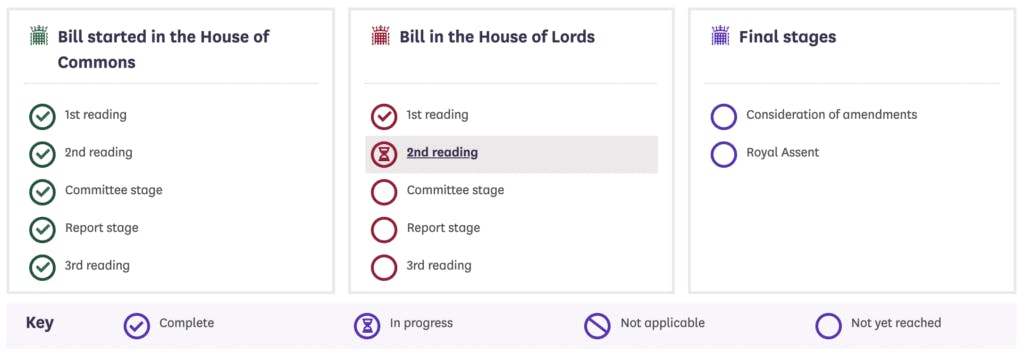Bill To Ban Cosmetic Injectables For Under 18s Progresses

The Bill to ban cosmetic injectables for under 18s in England has now progressed to the House of Lords.
Originally introduced to the House of Commons in February 2020, the Botulinum Toxin and Cosmetic Fillers (Children) Bill seeks to make it illegal for children to receive these types of aesthetics treatments.
At present, there are no age requirements for injectables in the UK. This has led to concerns that, should the Bill pass, underage English children may still be able to obtain such treatments in Scotland, Ireland or Wales.
Having passed the appropriate stages of consideration by the House of Commons, the Bill now sits with the House of Lords. On Friday 12 March 2021 it received its first reading in the Lords – a formality – and was ordered to be printed. A second hearing is due to be scheduled; this is where the Bill can be debated among members of the house.
There are six further steps before the Bill may be passed into law. Continues below…

Medical injectables not affected
This Bill seeks to ban botulinum toxin and “subcutaneous, submucous or intradermal injection of a filler” for cosmetic purposes in under 18s. It does not affect medical use, where botox is used to treat conditions such as Bell’s palsy or hyperhidrosis.
If it is successful, the Bill will also make business owners liable should staff – a “person other than an approved person” administer cosmetic injectables to anyone under 18 years of age.
Where this happens, the Bill states that “any director, manager or secretary of the body corporate or any person who was purporting to act in any such capacity” may also be deemed liable for the offence.
Enforcing the Bill would be monitored and enforced by local authorities. It is thought that unlimited fines would be the punishment for the offences it sets out, should it be passed into law.
Widely supported
The Bill is sponsored by Laura Trott, Conservative MP for Sevenoaks, Kent. It has garnered widespread bipartisan support as well as backing from the aesthetics industry.
In October 2020 Trott told parliament, “Alarmingly, this is an unregulated area. The data we have on prevalence is very thin, but a survey in 2018 showed that 100,000 under 16s had undergone cosmetic enhancements, with the most common being fillers. This is not only worrying for the mental health of our youngsters, but is worrying for their physical health too.”
Ministers who have spoken out in support of the potential ban include fellow Tories, Edward Agar, Minister of State for Health at the Department of Health and Social Care and Nadine Dorries, Minister for Mental Health, Suicide Prevention and Patient Safety.
Labour’s health minister, Kevan Jones MP, told the House of Commons, “Alongside this Bill, my department is also exploring a range of options for increased oversight of practitioners, including a system of registration or licensing.”
Harley Academy founder and CEO, Dr Tristan Mehta welcomes this positive update on the Bill’s progress, saying:
“This is a big step forward to achieving better regulation in aesthetics and, importantly, focusing on our most vulnerable cohort of patients – younger patients who feel increasing cultural and societal pressures to undergo treatments. I hope this can pave the way towards statutory regulatory requirements across the entirety of aesthetic medicine in the UK.”
We fully support the Botulinum Toxin and Cosmetic Fillers (Children) Bill and will bring you further updates as news becomes available.
All information correct at the time of publication
Download our full prospectus
Browse all our injectables, dermal fillers and cosmetic dermatology courses in one document
By submitting this form, you agree to receive marketing about our products, events, promotions and exclusive content. Consent is not a condition of purchase, and no purchase is necessary. Message frequency varies. View our Privacy Policy and Terms & Conditions
Attend our FREE open evening
If you're not sure which course is right for you, let us help
Join us online or in-person at our free open evening to learn more
Our Partners













STAY INFORMED
Sign up to receive industry news, careers advice, special offers and information on Harley Academy courses and services

